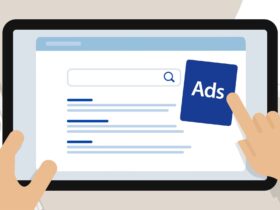Posted
Aug 12, 2024
The U.S. Department of Health and Human Services (HHS) recently published a final rule that establishes disincentives for health care providers that have committed information blocking—essentially those practices that interfere with the free flow of certain patient information.
This final rule exercises the Secretary’s authority under the 21st Century Cures Act (Cures Act) to establish “disincentives” for health care providers who engage in practices that the “health care providers knew were unreasonable and were likely to interfere with, prevent, or materially discourage the access, exchange, or use of electronic health information (EHI), except as required by law or covered by a regulatory exception.”
The rule applies to a broad range of eligible health care providers including hospitals, skilled nursing facilities, home health entities or other long-term care facilities.
For health care providers found by the HHS Office of Inspector General (OIG) to have committed information blocking and referred by OIG to the Centers for Medicare & Medicaid Services (CMS) the HHS has established the following disincentives, according to a public announcement regarding the rule:
- Under the Medicare Promoting Interoperability Program, an eligible hospital or critical access hospital (CAH) that has committed information blocking and is referred to CMS by OIG will not be a meaningful electronic health record (EHR) user during the calendar year of the EHR reporting period in which OIG refers its determination to CMS. If the eligible hospital is not a meaningful EHR user, the eligible hospital will not be able to earn three quarters of the annual market basket increase they would have been able to earn for successful program participation; for CAHs, payment will be reduced to 100 percent of reasonable costs instead of 101 percent. This disincentive became effective July 31, 2024.
- Under the Promoting Interoperability performance category of the Merit-based Incentive Payment System (MIPS), a MIPS eligible clinician (including a group practice) who has committed information blocking will not be a meaningful EHR user during the calendar year of the performance period in which OIG refers its determination to CMS. If the MIPS eligible clinician is not a meaningful EHR user, then they will receive a zero score in the MIPS Promoting Interoperability performance category. The MIPS Promoting Interoperability performance category score is typically a quarter of an individual MIPS eligible clinician’s or group’s total final score in a performance period/MIPS payment year, unless an exception applies and the MIPS eligible clinician is not required to report measures for the performance category. CMS has modified its policy for this disincentive to clarify that if an individual eligible clinician is found to have committed information blocking and is referred to CMS, the disincentive under the MIPS Promoting Interoperability performance category will only apply to the individual, even if they report as part of a group. This disincentive became effective July 31, 2024.
- Under the Medicare Shared Savings Program, a health care provider that is an Accountable Care Organization (ACO), ACO participant, or ACO provider or supplier who has committed information blocking may be ineligible to participate in the program for a period of at least one year. Consequently, the health care provider may not receive revenue that they might otherwise have earned through the Shared Savings Program. CMS also finalized in this rule that it will consider the relevant facts and circumstances (e.g. time since the information blocking conduct, the health care provider’s diligence in identifying and correcting the problem, whether the provider was previously subject to a disincentive in another program, etc.) before applying a disincentive under the Shared Savings Program. Any disincentive under the Shared Savings Program would be imposed after January 1, 2025.
- Additional disincentives may be established through future rulemaking.
For those found to have committed information blocking, the Office of the National Coordinator for Health Information Technology’s (ONC) will post on its public website certain information about health care providers that have been subject to a disincentive including:
- The health care provider name;
- Business address;
- The practice found to have been information blocking including when the practice occurred; and,
- The disincentive applied.
Impacted entities, if they have not already, should consider reviewing their information sharing practices to ensure they are in compliance with the new requirements.
Authors: Abbye Alexander and Christopher Tellner Co-Chair Kaufman Dolowich’s Managed Care/Health Care Practice Group















